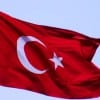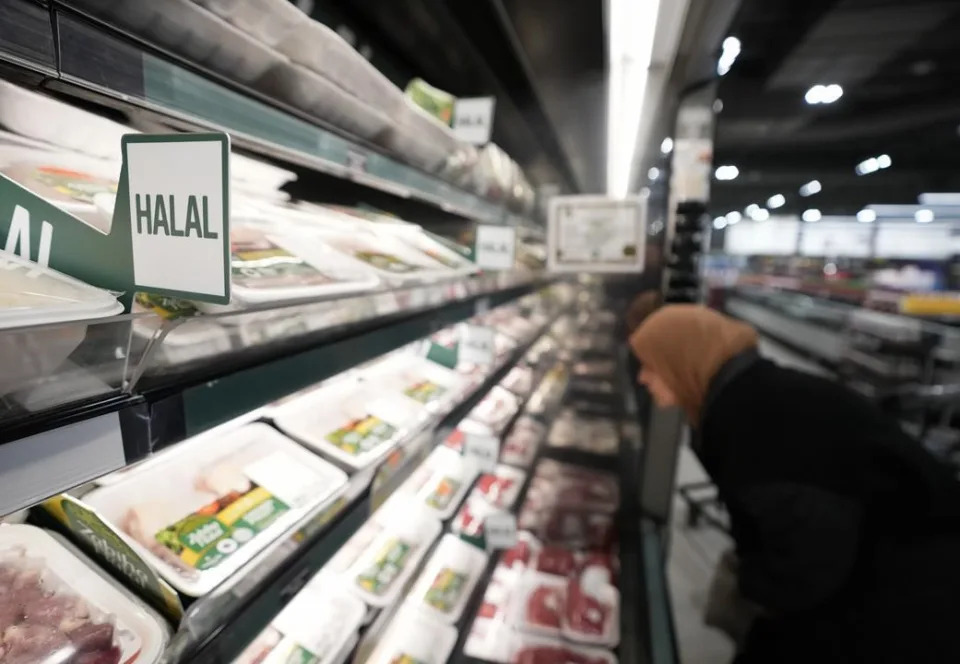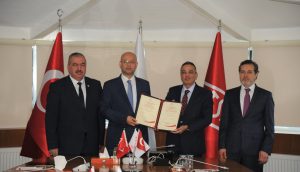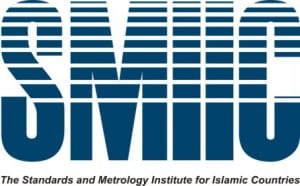TWO ARTICLES
An  institute for halal accreditation will be founded to overcome the hurdles that negatively impact Turkey’s exports due to the lack of common standards and certification, and to meet the gradually increasing halal product demand of nearly 2 billion Muslims around the world
institute for halal accreditation will be founded to overcome the hurdles that negatively impact Turkey’s exports due to the lack of common standards and certification, and to meet the gradually increasing halal product demand of nearly 2 billion Muslims around the world
The Ministry of Economy prepared a draft bill stipulating the establishment of an Institute for Halal Accreditation (HAK), which will be independent of the Turkish Accreditation Agency (TÜRKAK). The institute aims to meet the halal product demand of the 1.8 billion Muslims across the globe and to grant “halal” certification to the products that are compliant with halal conditions. Furthermore, the institute will also represent Turkey among the international organizations that operate in the field of halal accreditation and certification.
The interest and demand of a global Muslim population of 1.8 billion for halal products and their certification is incrementally increasing. Relatively, the scope of halal, which was initially associated with food, is now expanding to textile, cosmetics, logistics and services sectors, the statement of the Economy Ministry explained. As a concept, halal does not only pertain to food since halal means “permissible” and can refer to any aspect of life covered by the teachings of Islam.
The rationale of the ministry’s draft bill draws attention to the $2.3 billion of global trade potential in sectors subject to halal certification, while underscoring that halal requires products to be healthy, hygienic and high quality at every stage, from production to distribution, signifying the increasing awareness of the halal market. The statement, in this regard, highlights the necessity to establish an independent institute for halal accreditation.
No common language constituted
The ministry’s statement highlights the failed attempts to form a common language for halal certification  among Muslim-populated countries. “The global surge in the trade of halal products has led to the clarification of the hurdles in global trade, created by the different halal standards and certification systems,” the statement noted, adding that the Standards and Metrology Institute for Islamic Countries (SMIIC), which was founded with 36 members under the Organization for Islamic Cooperation in Istanbul, is the most fundamental initiative of Turkey in regard to constituting a common systemic body for halal certification. The SMIIC works with the establishment of common halal standards and a reliable certification system based on intergovernmental accreditation. Despite the progress made in forming a common halal accreditation and certification system through the institute, the ministry’s statement emphasized that the system is not operational yet.
among Muslim-populated countries. “The global surge in the trade of halal products has led to the clarification of the hurdles in global trade, created by the different halal standards and certification systems,” the statement noted, adding that the Standards and Metrology Institute for Islamic Countries (SMIIC), which was founded with 36 members under the Organization for Islamic Cooperation in Istanbul, is the most fundamental initiative of Turkey in regard to constituting a common systemic body for halal certification. The SMIIC works with the establishment of common halal standards and a reliable certification system based on intergovernmental accreditation. Despite the progress made in forming a common halal accreditation and certification system through the institute, the ministry’s statement emphasized that the system is not operational yet.
 While elaborating on the necessity of founding an institute for halal accreditation that is independent from the TÜRKAK, the ministry emphatically states that the TÜRKAK cannot run halal accreditation operations due to concerns that problems may arise in relation to the European Cooperation for Accreditation (EA).
While elaborating on the necessity of founding an institute for halal accreditation that is independent from the TÜRKAK, the ministry emphatically states that the TÜRKAK cannot run halal accreditation operations due to concerns that problems may arise in relation to the European Cooperation for Accreditation (EA).
“Since the halal accreditation of the TÜRKAK is not based on the common standards set forth by the European Union*, it exceeds the scope of the TÜRKAK. Moreover, the requirements that the halal certification bodies included in the SMIIC standards be Islam based creates a concern since the EA might consider this requirement discriminatory,” the ministry’s statement said, elaborating on the possible problems that may arise from the lack of a more global accreditation agency.
The statement also indicated that the possible problems that the TÜRKAK may have in accreditation dealings with the EA may pose significant negative risks to Turkey’s exports to European countries or others. In that regard, the rationale of the draft bill expressed that the more Turkey lags regarding the foundation of alternative organizations, the less effective it becomes in the matters of halal certification and accreditation.
The ministry, therefore, underscored the necessity to establish a halal accreditation institute that will be independent from the TÜRKAK and will represent Turkey in the matters of halal accreditation at the SMIIC and other international platforms, as well as assuming the leading role in accreditation work.
TOBB and TIM to have a chair in the board
According to the draft bill the decision-making body of the institute will be a board of 11 directors from public and private sectors with 3-year terms in office. The draft stipulates that the board members shall be appointed from the Ministry of Science, Industry, and Technology, the Ministry of Economy, the Ministry of Food, Agriculture and Livestock, the Ministry of Development, the Ministry of Culture and Tourism, the Ministry of Health, the Presidency of Religious Affairs, the Council of Higher Education, the Turkish Exporters Assembly (TIM) and the Turkish Union of Chambers and Commodity Exchanges (TOBB).
- In an attempt to bring halal standards into its institutional mainstream, the European Committee for Standardisation (CEN) had put halal standards on its agenda in 2015 but the technical committee was disbanded. According to the Codex Alimentarius Commission, the attempt failed as Islamic fiqh issues may create challenges while deciding on the critical issues in the technical process. There was also strong opposition from European Muslims who believe that halal standards must be “owned” by the Muslim community. (Salaam Gateway)
ARTICLE TWO – with comments from SMIIC secretary-general and IHAF secretary-general
SMIIC expects Turkey’s planned halal accreditation body to implement its standards – Sec Gen
By Emmy Abdul Alim for Salaam Gateway
The Standards and Metrology Institute for the Islamic Countries (SMIIC) will be expecting Turkey’s planned halal accreditation institute to implement its standards, SMIIC secretary-general Ihsan Ovut told Salaam Gateway.
Turkey’s ministry of economy had prepared a draft bill outlining the establishment of an Institute for Halal Accreditation (HAK) to meet the growing demand for halal products and their certification, and represent Turkey in international organisations that operate in the field of halal accreditation and certification, Turkish newspaper Daily Sabah (article above).
“For the case of the Institute for Halal Accreditation of the Republic of Turkey, we will be expecting from them the implementation of OIC/SMIIC standards in their activities,” said Ovut in an email to Salaam Gateway.
For full article go to Salaam Gateway:



